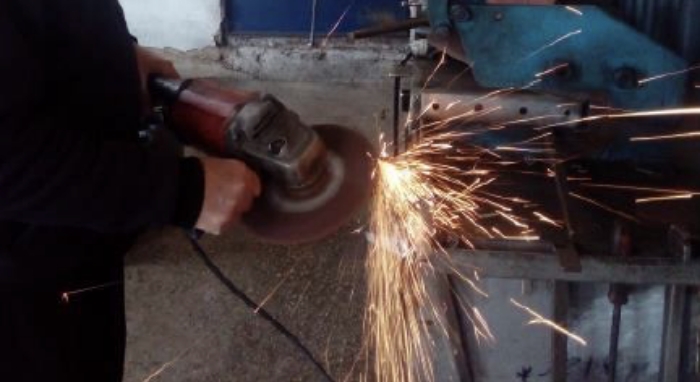Improving Access To Electricity In Lebanon’s Beqaa Valley
USAID Reduces Tensions Through an Emergency Response
“My sons are able to make enough money to cover the financial debt caused by the electricity shortage.The demand for their products increased, and they expanded their distribution to other areas in Lebanon.”
A series of storms that battered Lebanon’s Beqaa Valley in the winter of 2019 almost spelled disaster for families living in vulnerable communities in the region. Such was the case for Damen Abu Zor, his wife, and five of their children, who live in the small village of Tannoura. The family depends on two local businesses run by Abu Zor’s sons for their income, a bakery that sells a traditional bread called saj and a factory that manufactures wood and diesel heaters.
Even before the storm, the family struggled with challenges typical of those facing underserved communities like Tannoura.At the time, about 170 of the village’s 200 permanent households relied on a single medium-voltage generator to provide power during state electricity cuts, which often last up to 20 hours per day.
The extensive power cuts, says Abu Zor, ate into the businesses’ profits, threatening the family’s stability. “The operation of the factory was limited. My sons were not able to
use all the equipment at the same time,” he says. “They had to buy an expensive private generator to sustain their business.”
Furthermore, a disparity in electricity access was causing a rift in the community at large. The community generator didn’t have the capacity to power the houses on the village’s outskirts during electricity cuts, or even to fulfill basic public service needs such as street lighting. The situation led to tensions between residents who had full access to the generator’s electricity and those who benefited partially or not at all.
In response, USAID’s Lebanon Community Support Program (CSP) supplied the municipality with a new medium-voltage generator to help it cover the entire village’s electricity demand.The project, worth $40K, addressed a basic need of Tannoura’s
1,150 residents by providing 24/7 electricity access .
In the months since the generator’s successful installation, CSP surveyed more than 60 households in Tannoura following the intervention and all of them reported having improved access to electricity.
“Students are able to study in the evening,” Abu Zor says. “People are able to iron their clothes, and the generator helps preserve food in the fridge during power outages, which was a problem for most of the residents in the past. We feel safe going out at night, and our family and social visits have increased because of the generator. We don’t feel isolated anymore when losing our internet connection because of the electricity cut.”
USAID’s $80 million Community Support Program (2018 – 2025) is designed to provide a broad range of support to underserved and vulnerable communities to improve the delivery of essential services and enhance economic opportunities, primarily in Lebanon’s North, South, and Beqaa regions.

